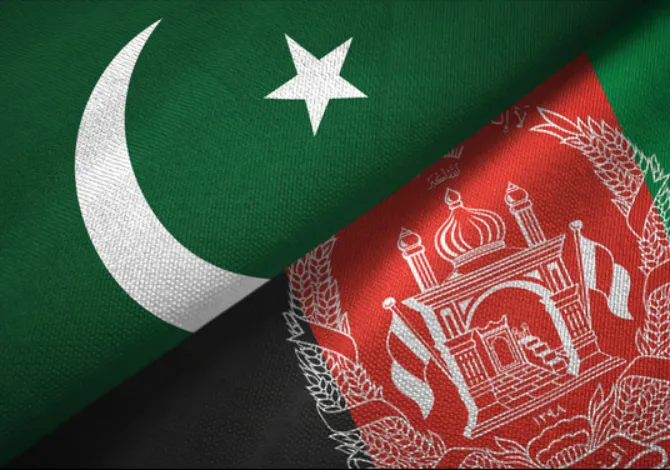-
CENTRES
Progammes & Centres
Location
As Pakistan struggles to prod the Taliban to act on militant groups, its dual policy of supporting extremist groups has come back to haunt it

The already precarious bilateral relationship between Afghanistan and Pakistan has descended further into the abyss in the last few months. In October, Pakistan announced its decision to deport all undocumented migrants—the majority of which were Afghans—to their countries after November 1. This decision, while unprecedented in its scale, didn’t appear in a vacuum. At around the same time, it also imposed restrictions on the Afghan Transit trade agreement in an apparent bid to restrict the smuggling of goods. Two years after the fall of Kabul, any hopes about the Taliban’s return resulting in security and strategic benefits for Pakistan have all but shattered.
Since August 2021, Pakistan has been the target of numerous militant attacks by the Tehreek-i- Taliban Pakistan (TTP) and its affiliates leading to heavy security and civilian casualties. The border skirmishes between the two sides have also increased with the main border crossing of Torkham being shut on multiple occasions. The TTP owes allegiance to the Taliban and has been waging a war against the Pakistani State for almost a decade and a half. The group saw a resurgence in 2020, after the signing of the peace deal in Doha. Since then, its activities inside the country have increased manifold. The authorities in Pakistan blame the Taliban for giving more ‘operational freedom’ to the TTP militants and allowing them to launch attacks inside their country. Per them, even after providing information about militant hideouts and urging them to act, the Taliban have denied any role in facilitating and supporting the group. Owing to their strong historical and ethnic ties and ideological affinity, the Taliban can’t afford to antagonise the group. Concerns about the militants joining other groups, particularly ISKP, remain while their influence over the activities of the TTP is also a leverage that they have over Islamabad. While they did help mediate talks between the TTP and Pakistan shortly after usurping power and relocated some refugees from the Khost and Kunar areas to remote Afghan provinces, the group denies any involvement in the cross-border attacks that the TTP orchestrates, labelling them as Pakistan’s internal problem.
The TTP owes allegiance to the Taliban and has been waging a war against the Pakistani State for almost a decade and a half.
The last few months saw an increase in the intensity of cross-border attacks. While the leaders of the Islamic Emirate have been meeting members from Pakistan’s interim government to assuage concerns and come to an understanding, the rhetoric has gradually hardened. In October, a senior Pakistani diplomat outlined how the coming of peace in Afghanistan didn’t result in ‘peace dividends’ for Pakistan. The interim prime minister also wrote to the acting PM of the Islamic Emirate on the need for both countries to work together and considered the group’s support to the TTP in contravention of the commitments made in the Doha agreement. Against this backdrop, Islamabad’s decision to deport vulnerable refugees back to Afghanistan and impose economic restrictions on the country are being perceived as a measure of last resort to nudge the Taliban to act.
Of the 4 million foreigners inside the country, nearly 3.8 million are Afghans, of which close to 1.7 million are in the country illegally. Even before the latest decision, Islamabad had attempted to put incremental pressure on the Taliban through the refugees by unjustified arrests and small-scale deportations. When the latest policy directive was announced, the Pakistani interior minister highlighted the role of 14 Afghan nationals in the 24 suicide bombings that the country saw in 2023. The PM also linked the decision to non-cooperation from the Afghan side. Pakistan has also tried to link the facilitation of trade with collective action against terrorism. The Taliban has categorised these decisions as ‘unilateral’, ‘unjustifiable’ and ‘inhumane’ and has warned of retributive actions if Pakistan doesn’t reverse its policy, with long-term implications for the bilateral relationship.
As Afghanistan is already reeling under a humanitarian crisis, accentuated by a consistent fall in aid and the devastating earthquakes in October, the additional influx of so many returnees will create new problems.
This will further aggravate the humanitarian situation in the region. Caught in this crossfire, the Afghan refugees are now locked in an unenviable position—while their condition in Pakistan was already not satisfactory, being forced to return to Afghanistan under a ruthless regime or risk being detained in their host country have compounded their difficulties further. As Afghanistan is already reeling under a humanitarian crisis, accentuated by a consistent fall in aid and the devastating earthquakes in October, the additional influx of so many returnees will create new problems. Around 9,000-10,000 refugees have been entering the country daily in trucks with limited belongings and cash with close to approximately 3,00,000 refugees forced to return till now. While the Taliban claim to have set up camps with food, shelter and healthcare facilities, the concerns about their survival and eventual integration remain. Some refugees are also at risk of retaliation from the Taliban. Even as the deportations were happening, a Pakistani air force base was attacked while security forces in Khyber Pakhtunkhwa were also targeted in two separate incidents.
The Pakistani PM has given the Taliban a binary choice—to choose between them and the TTP. As it struggles to prod the Taliban to act on the TTP and other militant groups, its dual policy of supporting extremist groups has come back to haunt it. The deportation of refugees will have a counterintuitive impact and reinforce the negative notions about Pakistan amongst Afghans. The possibility of the Taliban acquiescing to their demands is also very bleak. As the relations between the two sides deteriorate further, the vulnerable Afghan refugees are being forced to face the adverse consequences of this contestation between the two sides.
This commentary originally appeared in Financial Express.
The views expressed above belong to the author(s). ORF research and analyses now available on Telegram! Click here to access our curated content — blogs, longforms and interviews.

Professor Harsh V. Pant is Vice President – Studies and Foreign Policy at Observer Research Foundation, New Delhi. He is a Professor of International Relations ...
Read More +
Shivam Shekhawat is a Junior Fellow with ORF’s Strategic Studies Programme. Her research focuses primarily on India’s neighbourhood- particularly tracking the security, political and economic ...
Read More +